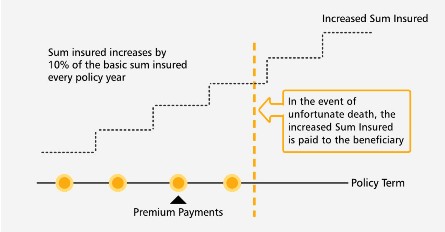Have Any Questions?
9845169191 | 9902977322
Visit Us
P.J.Extention, Davangere
Our Working Hours
Mon - Sat: 9.30 AM - 6.00 PM
9845169191 | 9902977322
P.J.Extention, Davangere
Mon - Sat: 9.30 AM - 6.00 PM
411 University St, Seattle
The indian life insurance sector has grown to be the world’s 11th largest in just 10 years. a younger workforce, a rise in personal incomes, market competition and regulatory initiatives make this a market to watch. Life Insurance is the key to good funds. On one hand, it safeguards your money and on the other, ensures its growth, thus providing you with complete funds well being.Life Insurance can be termed as an agreement between the policy owner and the insurer, where the insurer for a consideration agrees to pay a sum of money upon the occurrence of the insured individual’s or individuals’ death or other event, such as terminal illness, critical illness or maturity of the policy.

Safe and profitable long-term investment – Life Insurance is a highly regulated sector. IRDA, the regulatory body, through various rules and regulations ensures that the safety of the policyholder’s money is the primary responsibility of all stakeholders. Life Insurance being a long-term savings instrument, also ensures that the life insurers focus on returns over a long-term and do not take risky investment decisions for short term gains.